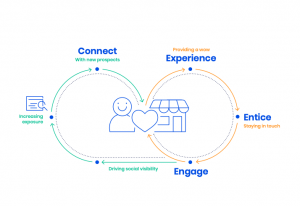Less than a third of leaders have a long-term remote strategy and most have invested little to no time or resources in building remote work processes, structures and culture for the long-term, a new survey has revealed.
The 400 HR and engineering leaders polled all came from organizations employing tech engineers and developers. While this is only one sector, it’s an industry that should, reasonably, be ahead of the rest.
Yet a majority of the leaders polled (53%) admit they spend more time planning the holiday party than planning for a remote work future, found the survey by Terminal, conducted by Method Research in July.
The size of the company has a bearing: smaller firms are less likely to be planning for the long term. Almost four in 10 (39%) companies with 100 employees or fewer have no plan, compared to 24% of midsize and 26% of large companies with 501+ workers.
Half of leaders anticipate increasing the proportion of their employees permanently working remote in the next two years.
When those who are planning ahead were asked what they were addressing, employee productivity was ranked as the chief concern (63%) while revising company benefits (29%) addressing employee loneliness (32%) and employee burnout (21%), were at the bottom. Only 33% reported that their existing plan addresses remote onboarding.

53% of leaders admit they spend more time planning the holiday party than planning for a remote work future db_oblikovanje / Pixabay
Plotting your long-term remote work strategy:
Think technology
Companies with semi or fully remote workforces will need an online habitat, but don’t get hung up on the architecture. It’s incredibly unlikely you’ll need to build your own digital workplace to support remote workers: 95% of the time the tech already exists, it’s secure and compliant and can be hosted in the cloud or on premises.
You just need to devote time to finding the software that fits your needs, pick the components you want and bolt them together. As your business grows, adapts and evolves, you can add and remove those component parts as needed. The software provider does the hard work of innovating and iterating your remote work tech.
Think Culture
Friday happy hours and Tuesday afternoon quizzes, although good for strengthening team bonds, aren’t culture. Culture is firmly wedded to your values as a company, which need to be well communicated and regularly reiterated. If that’s done efficiently, staff will embody those values, whether they’re working together or dealing with customers – until culture becomes something that anyone in contact with your business experiences.
So, actually, culture translates very well in the digital ecosystem where it can be pervasive: in your company social media feed, in every video the CEO makes and posts, in every chat thread, and in every project collaboration.
Think Communication
Apps like Slack, Google Meet and WhatsApp are great, to a point, but too many fragmented apps that don’t ‘speak’ to each other can cause problems. Employees can waste hours every month hunting down information.
A 2018 survey of 2,000 knowledge workers in the US, UK, and Australia by CITE Research on behalf of RingCentral found that workers use an average of four communication apps each, yet 70% find communication challenging. Two thirds (66%) want a single platform for all their comms.
While workers 45+ years old still prefer email (51%), a quarter say they find emails disrupt their workday: emails are the third most disruptive work activity after unscheduled meetings and phone calls. A majority (43%) of workers aged 18-44 years prefer team messaging, and find it the least disruptive work activity.
So, in your long-term strategy, make efficiency a priority, and integrate communication tools, with a single search bar for information retrieval. If the short term remote work strategy is to find the best apps for communication, then the long term is to simplify, and create one place to call home.
Business & Finance Articles on Business 2 Community
(51)








